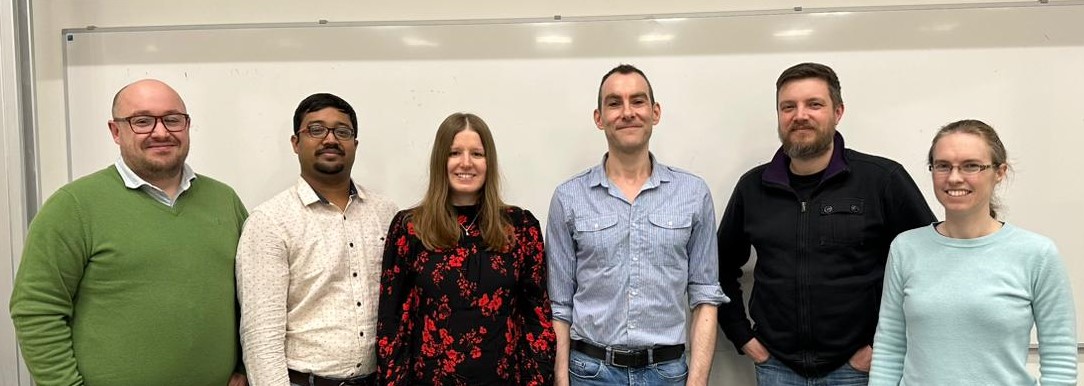
This list gives a sample of our activities over the last few years.
- Open Stats: This is a resource covering the statistics material in A-level mathematics. It is designed particularly for students whose background means they have not studied the up-to-date A-level curriculum before arriving at university, but is also available to other mathematics students for revision purposes. The course is delivered using the online learning platform Möbius, providing students with video explanations alongside randomised and auto-graded practice questions.
- IMA HE Teaching and Learning Series: Developing an undergraduate mathematics curriculum which is fit for purpose – challenges and opportunities:
(Wednesday 15th May 2019)
This workshop was supported by the IMA and was attended by over fifty participants from twenty-one different institutions across the UK and Ireland.
External speakers:- Dr Peter Rowlett (Sheffield Hallam University)
- Dr Pamela Docherty (University of Edinburgh)
- Dr David Bedford (Keele University)
- Dr Amir Asghari (Liverpool John Moores University)
- XJTLU linked projects (Math111): As part of their first-year mathematical programming module, the students complete a group project alongside students from XJTLU (who are completing their second year of studies in China before moving to the UK to join the final two years of the degree programme).
- Classroom Ideas seminars: These informal seminars provide an opportunity for members of the department to exchange different approaches to teaching (such as using online polling during teaching sessions, or using multiple choice questions in assessments). They typical format is that two speakers present their different approaches to similar situations, followed by time for discussion.
- Math107 (new module): This module is built around active learning, providing students with opportunities to tackle unfamiliar tasks with support from their peers and lecturers. It is centred around 'what it means to be a graduate mathematician' - how to approach undergraduate mathematics, what being a mathematics academic looks like at the University of Liverpool, and what sorts of roles are open to mathematics graduates outside of academia.
- Pedagogical leadership within the department during the pandemic: Lockdown and the move to online learning required a significant shift in methods of both teaching and assessment within the department. MathsCEE members contributed heavily to this transition by helping to develop new policies, helping lecturers to think through how to adapt their modules to the new pedagogies, and providing guidance on how to technically achieve the desired results.